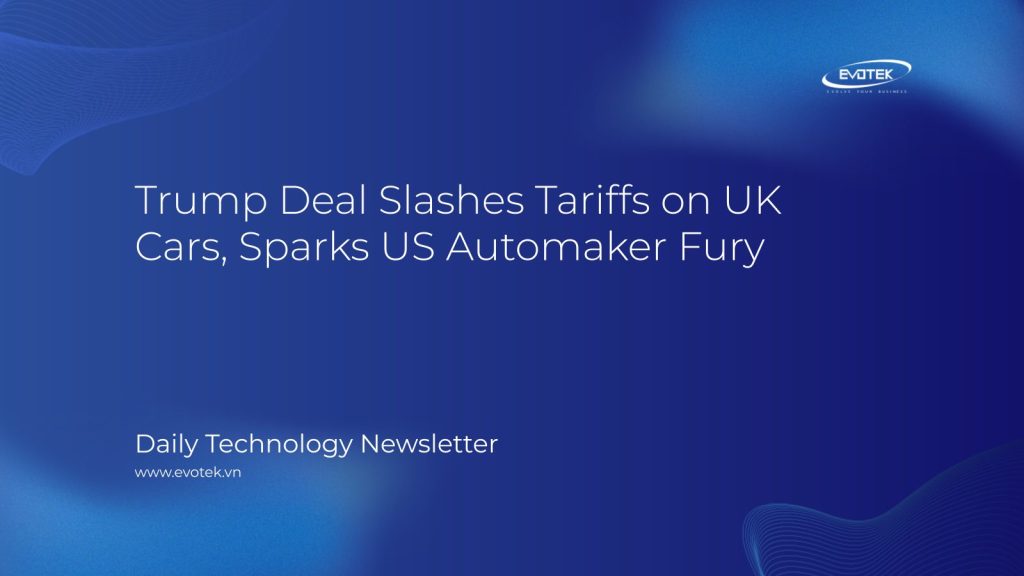A new agreement between the US and the UK has significantly reduced tariffs on British car imports, a move celebrated by UK automakers but criticized by their American counterparts.
Under the agreement, the first 100,000 cars exported annually from the UK to the US will now face a tariff of only 10%, a substantial decrease from the previous 27.5% imposed since the trade war began in April.
UK Auto Industry Cheers Tariff Cut
Adrian Mardell, CEO of Jaguar Land Rover, hailed the deal as a victory for the UK’s automotive sector. “The car industry is vital to the UK’s economic prosperity, sustaining 250,000 jobs,” Mardell stated. “We warmly welcome this deal which secures greater certainty for our sector and the communities it supports.”
The 100,000-car quota closely mirrors the UK’s recent export figures to the US, with approximately 102,000 cars shipped last year. Key British manufacturers like Aston Martin, Bentley, Jaguar Land Rover, McLaren, Mini, and Rolls-Royce stand to benefit.
While UK car imports to the US have surged by 39% since 2022, there’s a possibility that this figure might exceed the new quota in the coming year.
Detroit’s Big Three Express Disappointment
However, the agreement hasn’t been well-received by the “Big Three” American automakers – Ford, General Motors, and Stellantis.
“We are disappointed that the administration prioritized the UK ahead of our North American partners,” voiced Matt Blunt, president of the American Automotive Policy Council, representing Ford, GM, and Stellantis. “Under this deal, it will now be cheaper to import a UK vehicle with very little US content than a USMCA compliant vehicle from Mexico or Canada that is half American parts. This hurts American automakers, suppliers, and auto workers.”
The American Automotive Policy Council (AAPC) worries this sets a negative precedent. “We hope this preferential access for UK vehicles over North American ones does not set a precedent for future negotiations with Asian and European competitors,” Blunt added. This trade deal raises concerns about the future of automotive trade relationships and the competitiveness of American-made vehicles.

 日本語
日本語 한국어
한국어 Tiếng Việt
Tiếng Việt 简体中文
简体中文